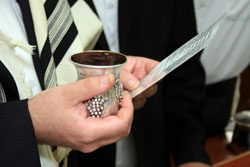Contributed by Scott Mims, Virginia, Beach, VA
Warm-up Question
- What is your favorite holiday or season in the church (liturgical) year? What about this season or event is most special to you?
- We are just starting the season of Epiphany. Epiphany means “revelation,” or “to make someone/something known.” Going back to your answers from above, what are some of the things that are revealed or made known about God in your favorite celebrations?
Revelations
When Kim Jong Il, then Supreme Leader of North Korea, died unexpectedly on December 17, 2011, his death not only made headlines but raised anxiety on the part of many across the globe. Fearful of problems associated with a power struggle in the North, or even of the nation’s collapse, forces in South Korea were placed on high alert, while other nations sought to reach out through diplomatic channels.
Adding to the uncertainty was the revelation that Kim Jong Il’s youngest son, Kim Jong Un, was his chosen successor. Little is known outside North Korea of Kim Jong Un who, in his late 20’s, has been hailed by officials and the state media in North Korea with titles such as, “Great Successor, Supreme Leader and Great Leader.” Most recently, he was officially recognized as the Supreme Commander of North Korea’s armed forces. While North Korea has called for its people to rally behind Kim Jong Un and to protect him as “human shields,” many around the world continue to deal with the uncertainty of what his age and inexperience may mean for international relations in the years to come.
Discussion Questions
- As we begin a new year, how optimistic are you about the way things are going in the world? How optimistic are you about the future? (You might have your group rate their response on a scale of 1 (very worried/pessimistic) to 10 (very optimistic). )
- If you are optimistic, what gives you the greatest hope? If you are not optimistic, what are some of your greatest worries?
- How much difference do events that happen in other parts of the world make in your own life? Do you believe that you can make a difference in the world?
- Note some of the titles given to Kim Jong Un (Great Successor, Supreme Leader, Great Leader, Supreme Commander), what do these say about who or what people hope he will be?
Scripture Texts (NRSV) for Sunday, January 15, 2012 (Second Sunday after Epiphany)
(Text links are to Oremus Bible Browser. Oremus Bible Browser is not affiliated with or supported by the Evangelical Lutheran Church in America. You can find the calendar of readings for Year C at Lectionary Readings.)
For lectionary humor and insight, check the weekly comic Agnus Day.
Gospel Reflection
The way in which we read or hear something can make all of the difference. One way to read these verses is simply as John’s  account of how Jesus called his first disciples. Yet, as a writer, John is a master at drawing in his audience through double meanings and a “deeper”, more personal sense of the story. Such is the case in this passage as Jesus addresses not just around him, but us as well, with an invitation to life.
account of how Jesus called his first disciples. Yet, as a writer, John is a master at drawing in his audience through double meanings and a “deeper”, more personal sense of the story. Such is the case in this passage as Jesus addresses not just around him, but us as well, with an invitation to life.
In any case, the first three words of this passage, “The next day,” clue us in to the fact that we need to go back a bit to understand what’s going on. As it turns out, this is actually the third “next day” section in the opening chapter of John’s gospel. In the first section, verses 29 – 34, “the next day” after John the Baptist explains his role to those sent from Jerusalem, he bears witness to Jesus as both the Lamb of God and Son of God. The “next day” after this (verses 35 – 43), his further testimony about Jesus leads two of his own disciples to follow after Jesus. Jesus, seeing them, asks, “What are you looking for?” When they stammer out, “Rabbi, where are you staying,” Jesus invites them to “Come and see.” His invitation initiates an ever-widening circle of discipleship as one of the two, Andrew, goes to his own brother, Simon Peter, with the news, “We have found the Messiah.”
So it is that we come to the “next day” of this week’s gospel. Deciding to go to Galilee, Jesus first calls Philip. Philip, in turn, invites Nathanael saying, “We have found him about whom Moses in the law and also the prophets wrote, Jesus son of Joseph from Nazareth.” Here, “the law and the prophets” means the whole of the Scriptures for these Jewish believers. Brushing aside Nathanael’s remark about the insignificance of Nazareth, Philip offers once again the invitation, “Come and see.” Nathanael does, and his own encounter with Jesus, and Jesus’ ability to “know” and “see” him from afar, not only leads Nathanael to believe in Jesus, it also draws forth a confession of faith: “Rabbi, you are the Son of God! You are the King of Israel!” Jesus assures him that greater things are yet to come. ‘Very truly, I tell you, you will see heaven opened and the angels of God ascending and descending upon the Son of Man.’
So, as the first chapter of his gospel ends, John leaves us with Jesus heading towards Galilee with a growing group of followers. Yet, there is a deeper way to hear this passage. Jesus’ very first words in John’s gospel, “What are you looking for?” are a question to us, as well. When it comes to life…when it comes to faith, what are we looking for? Deep down in our bones, what is it that we really need? In these three “next days,” we hear Jesus being called many things. John the Baptist calls him “the Lamb of God who takes away the world’s sin” and “Son of God.” Andrew calls him, “Rabbi” and “Messiah.” Philip says Jesus is the one, “about whom Moses in the law and also the prophets wrote.” Nathanael adds that Jesus is, “the King of Israel.” Is Jesus what we are looking for? Is he the one that we really need? The invitation that John offers to us through the rest of his gospel account, and indeed through our own experience of living as followers of Jesus, is simply to “Come and see.”
Discussion Questions
- Why do you think this particular gospel reading was chosen for today? In what ways is Jesus being revealed and by whom?
- When it comes to the titles and names given to Jesus in John 1:29-51, (Lamb of God, Messiah, Son of God, Rabbi, King of Israel, Son of Man) which one is most important or most meaningful to you? Why?
- If you had been Philip and Jesus had just walked up to you and said, “Follow me,” would you have gone? If so, why? If not, then what further information would you have needed? What else would you have wanted to know before making such a commitment? Do you think we have this information now?
- What does it look like to you to follow Jesus? Is following Jesus different from believing in him? Why or why not?
- Nathanael came to Jesus because Philip invited him to “come and see.” What do you think would be the best way to invite a friend of yours to “come and see” Jesus today? What are some approaches that might not work so well with your friends or in your setting?
Activity Suggestions
- As an opening activity, you might try a Trust Walk experience. One variation is to have a single leader and the rest of the group blind folded; another variation is to break the group up into partners who take turns being the guide/ blind folded. Groups with a single leader might have everyone place their hands on the shoulders of the person in front of them, or hold on with one hand to a large rope that connects the whole group. The goal for the leader(s) is to guide those who follow safely along a route. The goal for those who are blind folded is to experience what it is like to trust others as they follow. Debrief: What was the experience like for you? Is it easy or difficult for you to trust someone else to guide you? How is having “faith” like a “Trust Walk?”
- Going Deeper: For further discussion on the sheer grace of being called to follow Jesus, watch Rob Bell’s short video, Dust (Nooma series). Though not specifically about this passage, he presents a great take on what being called to “Follow me,” by a rabbi meant in Jesus’ day, and how Jesus’ invitation to Andrew, Peter, James, John, Philip, Nathanael and the rest would have been most unusual. Talk together about what it means that Jesus calls us to be his followers. What does it mean to you that Jesus believes in you? Does this change the way you see yourself as a disciple?
- Reaching Out: As a group, explore ways to invite your friends to “come and see” Jesus. How would you go about it? Would you hold an event of some sort? Would you invite them to a service project? A retreat? A play or music festival? A coffeehouse? A specially designed worship service? What activities are you already doing that are, or could be, great places for friends to experience God’s love and grace? How might you use social media or other modern means to invite folks? What “barriers” might need to be overcome? Brainstorm the possibilities – can you make a plan to try one or more of these possibilities out during this season of Epiphany?
Closing Prayer
Gracious and loving God, we live in uncertain and anxious times, and yet we also have much that gives us hope. As your Spirit continues to reveal Jesus to us, so help us to respond to his invitation to “Come and see,” that, led and sustained by Jesus’ presence among us, we may live as vibrant and faithful witnesses to your love; through Jesus Christ, our Lord. Amen!




